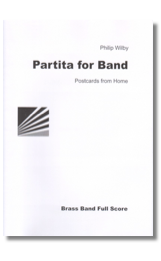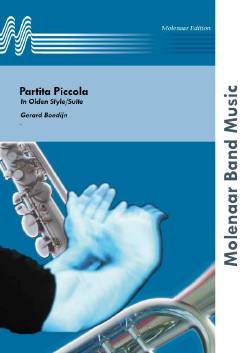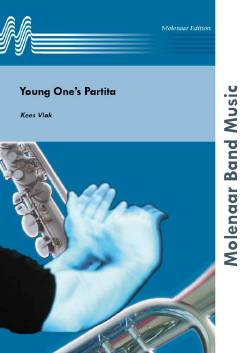Results
-
 £42.00
£42.00Partita for Band (Postcards from Home) (Score only) - Philip Wilby
The sound and culture of brass bands was part of Philip Wilby's childhood, and this short Partita seeks to commemorate his childish memories in the musical terms of today's currency. Although the music makes technical demands on the players the piece is, nevertheless designed to involve rather than impress its audiences. There are four movements: 'Towers and Chimneys' which is both heraldic and mysterious; 'Churches: Lord of the Dance' is an arrangement of the famous shaker melody made popular in Martin Shaw's hymn of Jesus' life and history; 'Pastorale: Sunday Afternoon recalls those long and languorous days before television, and 'Coronation Day Parade' - a community celebration with a brass band at its centre. Duration: 12:00
Estimated dispatch 7-9 working days
-
 £52.00
£52.00Partita for Band (Postcards from Home) (Parts only) - Philip WIlby
The sound and culture of brass bands was part of Philip Wilby's childhood, and this short Partita seeks to commemorate his childish memories in the musical terms of today's currency. Although the music makes technical demands on the players the piece is, nevertheless designed to involve rather than impress its audiences. There are four movements: 'Towers and Chimneys' which is both heraldic and mysterious; 'Churches: Lord of the Dance' is an arrangement of the famous shaker melody made popular in Martin Shaw's hymn of Jesus' life and history; 'Pastorale: Sunday Afternoon recalls those long and langorous days before television, and 'Coronation Day Parade' - a community celebration with a brass band at its centre. Duration: 12:00
Estimated dispatch 7-9 working days
-
 £51.00
£51.00Partita Piccola - Gerard Boedijn
Estimated dispatch 10-14 working days
-
 £94.00
£94.00Young One's Partita - Kees Vlak
Estimated dispatch 10-14 working days
-
£44.95
PARTITA (Brass Band Set) - Edward Gregson
Estimated dispatch 7-14 working days
-
 £60.99
£60.99 -
 £144.00
£144.00Partita Burlesca - Eddy Debons
Estimated dispatch 5-14 working days
-
 £49.10
£49.10Partita Piccola - Gerard Boedijn
Estimated dispatch 5-14 working days
-
 £90.30
£90.30Young One's Partita - Kees Vlak
Estimated dispatch 5-14 working days
-
£89.95
Partita - Philip Sparke
Estimated dispatch 5-14 working days
